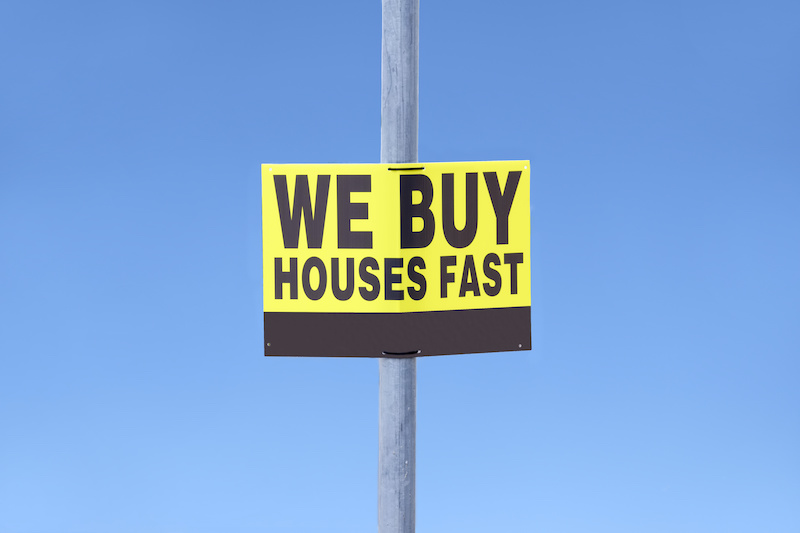
There are hundreds if not thousands of people advertising “we buy houses”. The fact is some of these “buyers” are not really buyers. Their intention is to “middleman” the deal. Let me explain.
What do I mean by “middleman” the deal. In almost all states, it is legal to sell a contract. That includes Florida. What this means is that a “wholesaler” can sign a contract to purchase your house and then resell that contract. Why would they do that? Because they signed a contract to purchase it at “y” price, believing they have a contract to purchase it under market value, and then they want to resell the contract at a higher price. The problem with that is many novices have no idea of the true value. They often underestimate the rehab costs, and over estimate the resale value of the property once fixed up. Astute buyers won’t make that mistake and know rehabbing costs as well as the market value once a house is fixed up. Here is how they advertise it:
Purchase price (including their fee) 200,000
Rehab estimate $40,000
Resale value $310,000
When an experienced flipper looks at the value, they find the rehab cost to be underestimated by $20,000. So the true cost to fix it up is $60,000 not $40,000. Then they do research and find out the true resale value is $280,000. What this means is that a flipper would need to spend $260,000 and only be able to resell at $280,000. A flipper will not take the risk of spending $260,000 if they believe they can only resell at $280,000 leaving them $20,000 profit. That is not enough of a profit to justify spending $260,000. When this happens, the “wholesaler” cannot find a buyer for the contract.
What happens then? The fake buyer, that had no intention of actually buy of the property, walks away.
How can they walk away and not lose their earnest money? They have “escape clauses” such as “subject to my partners approval” when they have no partner. Or “subject to financing” when they have no intention of arranging financing and buying the property. Another common “escape clause” is “subject to inspection”. They usually set a long inspection period which buys them time to market the contract. By utilizing the escape clause, which is legal, they are entitled to receive their earnest money returned. They simply CLAIM the property did not meet their inspection critieria.
Where does this leave a buyer? Their house is not sold, and their property was off the market for a period of time. Often times, the seller does not realize they were “played” by the buyer, and simply accepts the “wholesalers” reason for not closing on the deal. I once saw a house put under contract for $580,000 with an earnest money of $15.00. The true market value of the property, as is, was approximately $400,000. They then advertised it at a price of $680,000. Even if the “wholesaler” walked away and forfeited their earnest money of $15.00, their loss was insignificant. In this actual transaction, the “wholesaler” was not able to find a REAL buyer, and they walked away. The seller was devastated.
The bottom line: they “buyer” walked in, deceived the seller, and then walked away. Nobody wants to be lied to.
How can you, a seller, avoid falling into this trap?
1. Don’t accept a ridiculous earnest money deposit. A real buyer will put down a few thousand dollars.
2. Don’t fall for long inspection periods. It takes a few days, 4 or 5, to get a licensed inspector to come do a report.



